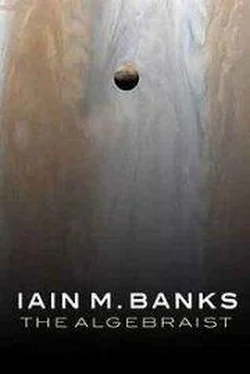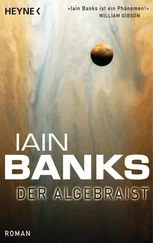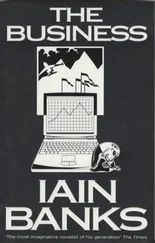Fassin looked away. Another servant approached him, offering a tray of drinks and sweetmeats, but he smiled and raised one hand in a gesture of rejection and the servant bowed and retreated. Fassin fixed his gaze politely on the dome’s roof and the view of the gas-giant, while watching from the corner of his eye as the servant attending his uncle dabbed at the old man’s lips with a neatly folded cloth.
Magisterial, oblivious, moving almost imperceptibly with a kind of tumultuous serenity, Nasqueron turned above them like some vast glowing coal hanging in the sky.
The gas-giant was the largest planet in the Ulubis system, which lay within a remote strand of Stream Quaternary, one of the Southern Tendril Reefs on the galactic outskirts, fifty-five thousand years from the galaxy’s nominal centre and about as remote as it was possible to get while still being part of the great lens.
There were, especially in the current post-War age, different levels of remoteness, and Ulubis system qualified as back-of-beyond in all of them. Being on the outermost reaches of the galaxy — and hanging well underneath the galactic plane, where the last vestiges of stars and gas gave way to the emptiness beyond — did not necessarily mean that a place was inaccessible, providing it was close to an arteria portal.
Arteria — wormholes — and the portals which were their exits and entrances meant everything in the galactic community; they represented the difference between having to crawl everywhere at less than the speed of light and making almost instantaneous transitions from one stellar system to another. The effect they had on a system’s importance, economy and even morale was similarly dramatic and rapid. Without one, it was as though you were still stuck in one small village, one dull and muddy valley, and might be there all your life. Once a wormhole portal was emplaced, it was as though you suddenly became part of a vast and glittering city, full of energy, life and promise.
The only way to get an arteria portal from one place to another was to put it in a spaceship and physically take it, slower than light, from one place to another, leaving the other end — usually — anchored where you’d started out. Which meant that if your wormhole was destroyed — and they could be destroyed, in theory at any point along their length, in practice only at their ends, at their portals — then you were instantly all the way back to square one, stuck in your isolated little village once again.
Ulubis system had first been connected to the rest of the galaxy over three billion years earlier, during what was then known as the New Age. It had been a relatively young, not-long-formed system at the time, just a few billion years old, but was already multiply life-supporting. Its arteria connection had formed part of the Second Complex, the galactic community’s second serious attempt at an integrated network of wormholes. It had lost that connection in the billion-year turmoil of the Long Collapse, the War of Squalls, the Scatter Anarchy and the Informorta breakdown, then — along with most of the rest of the civilised galaxy — slumbered as if comatose under the weight of the Second, or Major, Chaos, a time when only its Dweller population on Nasqueron had survived. The Dwellers, being numbered amongst the species meta-type known as the Slow, worked to a different timescale, and thought nothing of taking a few hundred thousand years to get from point A to point B; a billion years of nothing much happening was, they declared, merely like a long sabbatical to them.
Following the Third Diasporian Age (and much more besides — galactic history wasn’t really simple on any scale) another wormhole brought Ulubis back on-line to become part of the Third Complex. That arteria lasted for seventy million peaceful, productive years, during which several Quick species, none of them native to Ulubis, came and went, leaving only the Dwellers to bear consistent witness to the slow turn of life and events. The Arteria Collapse had plunged Ulubis into solitude once again, along with ninety-five per cent of the connected galaxy. More portals and wormholes disappeared during the War of the New Quick and the Machine War, and only the establishment of the Mercatoria — at least by the estimation of those who controlled it — brought about a lasting peace and the beginning of the Fourth Complex.
Ulubis had been reconnected early on in this slow, still-at-the-early-stages process and for six thousand years that latest arteria had made the system an easily reached part of the gradually recovering galactic community. However, then that worm-hole too had been destroyed, and for over a quarter of a millennium Ulubis’s nearest working access point had been fully two hundred and fourteen years away further down the increasing thickness of the Stream at Zenerre. That would change in about seventeen years or so, when the wormhole end-point currently being transported towards Ulubis system at relativistic speeds aboard the Engineership Est-taun Zhiffir arrived and was emplaced, probably where the old portal had been, at one of the Lagrange points near Sepekte, the principal planet of the Ulubis system. For the moment, though, Ulubis, despite its importance as a centre for Dweller Studies, remained remote chronologically as well as physically.
Uncle Slovius waved the servant away with one flipper and drew himself up against the Y-shaped cradle which supported his head and shoulders above the blue glowing surface of the pool. The servant — Fassin recognised him now as Guime, the second-highest-ranking of his uncle’s retainers — turned back and tried to help Slovius in this manoeuvre. However, Slovius made hissing, tutting noises and slapped at the male with one flipper hand. Guime dodged the weak, slow blow easily and stepped back again, bowing. He stood nearby, by the wall. Slovious struggled to lift his upper body any further out of the pool, his tailed torso stirring sluggishly under the luminescent waves.
Fassin started to rise from his cross-legged position. “Uncle, do you want me to—?”
“No!” his uncle shouted in exasperation, still trying ineffectually to push himself further up the cradle. “I would like people to stop fussing, that’s all!” Slovius turned his head round as he said this, trying to look at Guime, but only succeeded in causing himself to slip further back into the liquid, so that he was even more horizontal than he had been before he started. He slapped at the pool surface, splashing. “There! See what you’ve done? Interfering idiot!” He sighed mightily and lay back in the wallowing waves, apparently exhausted, staring straight ahead. “You may adjust me, Guime, as you wish,” he said dully, sounding resigned.
Guime knelt on the tiles behind him, put a hand under each of Slovius’s armpits and hauled his master upwards onto the cradle until his head and shoulders were almost vertical. Slovius settled himself there, then nodded briskly. Guime retreated again to his position by the wall.
“Now then, nephew,” Slovius said, crossing his flipper hands over the pink expanse of his hairless chest. He looked up at the transparent, summit of the dome.
Fassin smiled. “Yes, uncle?”
Slovius seemed to hesitate. He let his gaze fall to his nephew. “Your… your studies, Fassin. How do they progress?”
“They progress satisfactorily, sir. In the matter of the Tranche Xonju it is still, of course, very early.”
“Hmm. Early,” Uncle Slovius said. He looked thoughtful, staring into the distance again. Fassin sighed gently. This was obviously going to take some time.
Fassin Taak was a Slow Seer at the court of the Nasqueron Dwellers. The Dwellers — Gas-Giant Dwellers, to give them a fuller designation… Neutrally Buoyant First Order Ubiquitous Climax Clade Gas-Giant Dwellers, to grant them a still more painfully precise specification — were large creatures of immense age who lived within the deliriously complex and topologically vast civilisation of great antiquity which was distributed throughout the cloud layers wrapping the enormous gas-giant planet, a habitat that was as stupendous in scale as it was changeable in aerography.
Читать дальше












